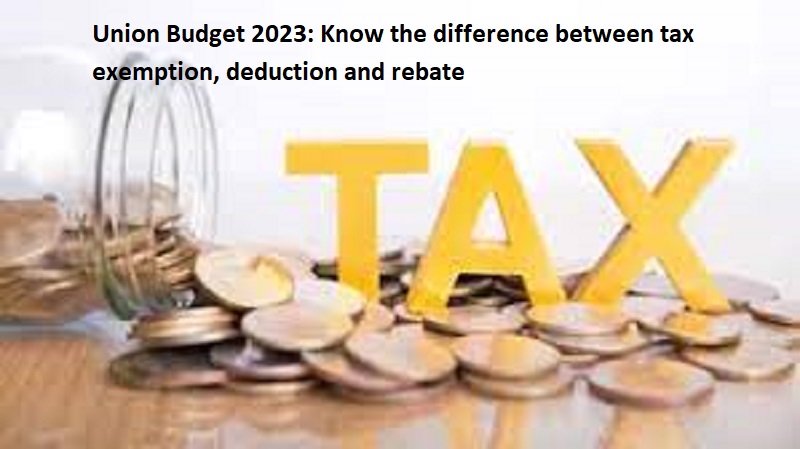
New Delhi: Union Finance Minister Nirmala Sitharaman will present the Union Budget 2023 in the Indian Parliament on February 1. Taxpayers in the country are waiting for the budget as some relaxations will be announced by the government.
The relaxation in income tax is given by the Union government in 3 ways — exemption, deduction and rebate. As per experts, these 3 terms has its own connotation and meaning different from the other.
Tax Exemption: Income tax exemption means no tax will be levied. Currently, income tax is exempt up to a total annual income of Rs 2.5 lakh. Various exemptions have been given under the Income Tax Act, 1961.
Also Read: Go First announces massive discounts on domestic and international flight tickets
Tax Deductions: Income tax deductions pertain to specific deductions which a taxpayer is eligible for on account of investments made (Section 80C) or sum expended (Section 80D or Section 80E). Tax exemption means no tax to be levied on the income, tax deduction is reduction of taxpayer’s gross income on which tax shall be calculated.’
Tax Rebate: The tax rebate is different from exemption and deduction. Under the rebate, a limit is fixed up to which the income is tax-free under Section 87A of the Income Tax Act, 1961. However, if the annual income exceeds the limit, tax on whole income tax is to be paid.
For example, income tax rebate is given up to an income of Rs 5 lakh currently. So, if an individual is earning an income of Rs 5 lakh, the whole income is tax-free. However, if the annual income is Rs 5.1 lakh, then the tax on whole Rs 2.6 lakh will be levied (as income up to Rs 2.5 lakh is exempt).

Post Your Comments